Basements have been a part of homes for centuries, but why are they so popular? There are several reasons why basements are beneficial and have become an integral part of many homes. From extra storage space to increased property value, there are numerous advantages associated with having a basement in your house. Additionally, basements provide homeowners with the opportunity to create functional living spaces that can be used for any number of activities. In this article, we will explore all the benefits that come from having a basement in your home and discuss why it is such a valuable addition to any residence.
What Is The Purpose Of A Basement?
The purpose of a basement is primarily to provide additional living space and storage. For most people, the basement serves as an area for laundry, extra bedrooms, or a recreational room.
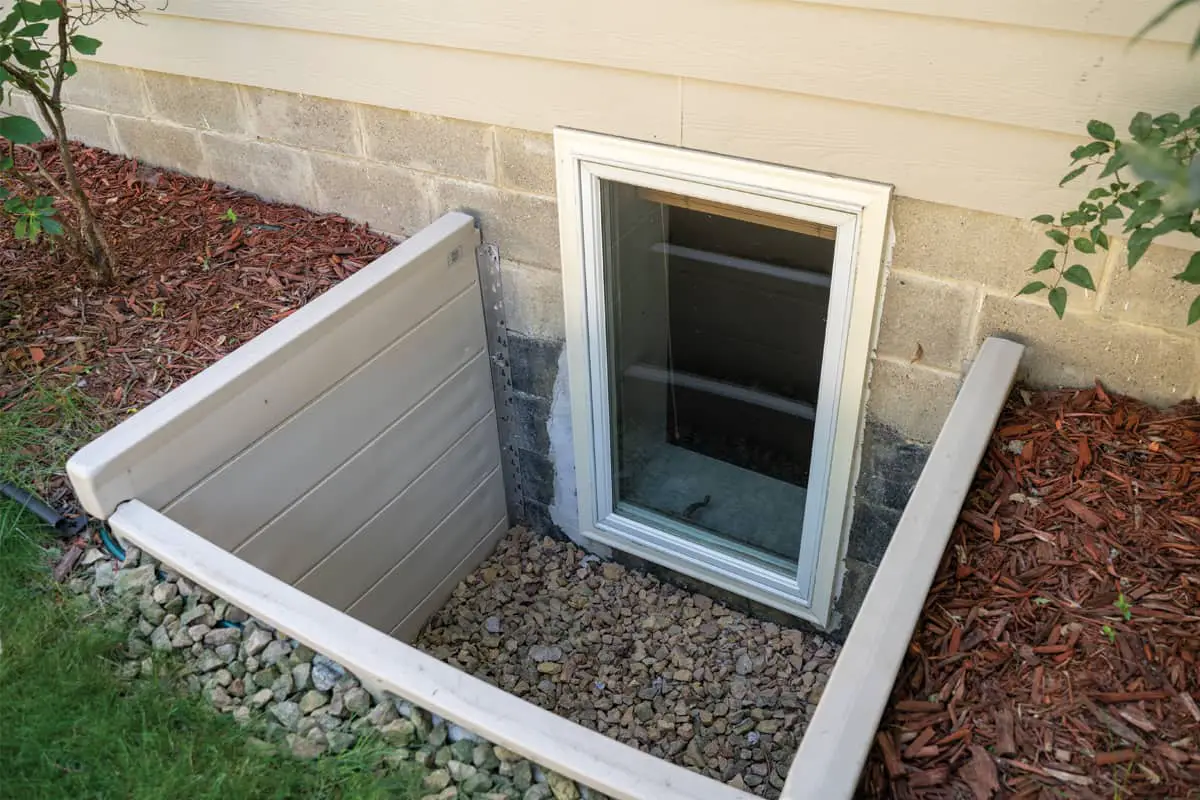
Basements are also useful for providing more storage space than what other areas of the home can offer. Having a separate area dedicated to storage keeps clutter away from the main living space, making it easier to keep the home organized.
Basements can also be used as an emergency shelter in the case of natural disasters such as floods.
Having a basement allows homeowners to take refuge from potential danger on the lower levels of their house, which is often much safer than staying upstairs. [1]
What Should A Basement Have In It?
Most basements are used for storage, however many homeowners are now transforming their basements into multi-functional spaces. A basement can be equipped with amenities such as a workshop, home office space, playroom, entertainment room or even an extra bedroom.
Consider adding features like built-in shelves and cabinets to store items discreetly in plain sight. Consider installing a carpet or other flooring to make the basement more comfortable, and use area rugs for texture. A bathroom can also be added for convenience and comfort.
Adding windows will bring in natural light and ventilation, while still providing privacy. Installing a wet bar or kitchenette is another popular addition to basements, making it an ideal place to entertain guests or relax in the evening. With a little creativity and planning, your basement can be transformed into an inviting and cozy space that you’ll enjoy for years to come. [2]
Some Of The Best Basement Ideas
Basements can be used for a variety of purposes, from additional living space to storage or entertainment. Here are some of the most popular basement ideas:
The Game Room
Adding a game room to the basement is one of the most popular basement ideas. It can provide the perfect place for some family fun, as well as a great spot for entertaining friends. There’s no need to limit yourself to classic board games; you can also add video game consoles and other modern entertainment options. Just be sure to include plenty of seating, and consider hanging decorations to give your game room a fun, vibrant atmosphere.
The Home Theatre
A basement is a great place to create an inviting and cozy home theatre. Not only does it provide plenty of space for seating, but it also offers the perfect environment to get immersed in a movie. By adding comfortable furniture, blackout curtains for light control, and a well-positioned TV or projector screen, homeowners can create their very own home theatre in the basement. This is a great way to make movie nights or family gatherings even more special and enjoyable.
The Music Room
Basements are not just used for storage, some people also use them to create a music room. The reason why basements are great for this is because they offer soundproofing and insulation that other rooms in the house cannot provide. A music room can be used to practice instruments or even record music without having to worry about disturbing anyone else in the house.
Additionally, basements are usually already equipped with electrical outlets and provide easy access to plumbing for instruments that require water or other liquids. With some insulation and soundproofing material, a basement music room can be the perfect place for anyone who wants to have privacy and practice their musical talents.
The Second Suite
In recent years, basements have started to be seen as an effective way to gain more living space without having to build upwards or expand outward. This is especially true for larger homes, where the basement can be used as a “second suite” of sorts, typically with its own entrances and living spaces that are separate from the rest of the house. This can be a great way to accommodate guests, renters, in-laws, older children, or anyone else who needs their own space without having to build an entire addition on the house. The second suite is growing in popularity and has become an increasingly common feature of new homes built today. [3]
Benefits Of A Basement In Homes
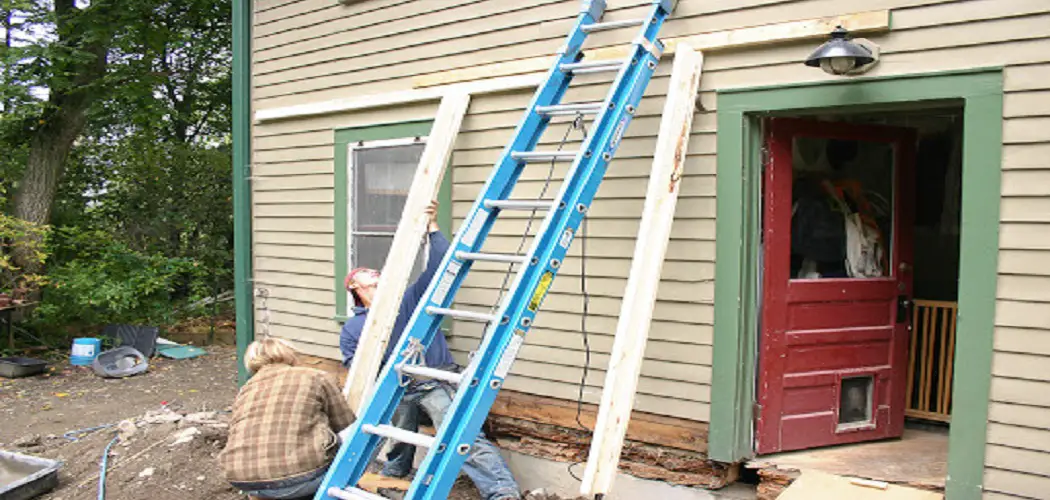
Having a basement in your home can provide you with plenty of benefits. Here are the top five:
- Extra Storage Space – Basements can be used to store items that need extra protection from high temperatures, humidity, or pests. They also provide more organized storage opportunities than closets and other spaces in a house do.
- Increase Home Value – A house with a basement can be worth more than one without a basement due to its additional features, such as extra storage and living space.
- Reduce Energy Costs – Because basements are usually cooler than upper levels of the home, they require less energy for heating and cooling. This can result in significant savings on energy bills.
- Additional Living Space – Basements can be used as extra living space, such as a playroom, man cave, office, or even a bedroom. This is great for homes with limited square footage on the upper levels.
- Natural Disaster Protection – Basements can provide safety from storms and other natural disasters. They can be outfitted with items like a sump pump, dehumidifiers, and wall reinforcements to make them even more resilient in the face of potential danger.
These are just some of the many benefits that come with having a basement in your home. If you’re thinking about building one or updating an existing one, make sure to consider the cost and other factors before making your decision.
Disadvantages Of The Basement In Houses
Although the basement offers many advantages, there are disadvantages to having a basement in your house as well.
The most significant disadvantage of the basement is the potential for flooding and dampness.
Basements are often more prone to flooding than other parts of the home due to their lower levels. If a flood occurs, it can cause extensive damage to the items in the basement. It can also lead to mold and mildew growth, as well as damage to walls, furniture and appliances.
Basements are often cooler than other parts of the home due to their lower levels, which can make them uncomfortable during hot summer months. To combat this issue, insulation must be properly installed in the basement to keep it cooler in the summer and warmer in the winter.
The basement is also a place where pests can hide, such as rodents, insects and spiders. Proper inspection should be conducted regularly to ensure there are no pest infestations. If any pests are present, immediate action must be taken to remove them or prevent them from entering the home.
Finally, basements can be challenging to maintain due to their lower levels and lack of natural light. The basement must be kept clean and clutter-free in order to prevent mold, mildew and other types of damage. Regular inspections should also be conducted to ensure the foundation is not weakened by moisture or structural damage. [4]
FAQ
Why do Texas houses not have basements?
Basements are not common in Texas due to the area’s geology, which makes it difficult to construct basements safely. Many parts of Texas have dry and sandy soil, which is not suitable for digging out a basement space. Additionally, the areas around Austin, San Antonio and Houston are prone to floods and hurricanes that could damage any basement space that is built. Due to the risks and challenges associated with building basements in Texas, most houses have been constructed without them.
Why do we need a basement?
Basements provide an important function in modern homes. In some climates, they may be absolutely necessary due to the risk of flooding or other natural disasters that can occur. Basements also offer extra living space and storage solutions, making them a great choice for families who are looking to increase their home’s square footage without having to build out wards. Basements are also excellent for creating separate living spaces or housing extra laundry facilities and other utilities. Basements can also help reduce utility bills by providing a buffer against outside temperatures, which helps keep the home’s interior climate more consistent and comfortable. They may also be built with additional insulation to further reduce heating and cooling costs.
Finally, basements provide a great opportunity for adding extra value to a home and increasing resale value. In short, basements are an important part of modern homes that offer numerous benefits in terms of function and potential return on investment. By creating strategic uses for their basement space, homeowners can enjoy all the advantages that come with having one.
Why do Californians not have basements?
Californians typically do not have basements due to the high water table, seismic activity, and a number of other factors that make it difficult and expensive to build them. The high water table makes it hard to keep basements dry since they would need to be set below the level of the ground water. Seismic activity can cause severe damage to a house with a basement, so builders often opt against building them due to the additional costs associated with strengthening the foundation.
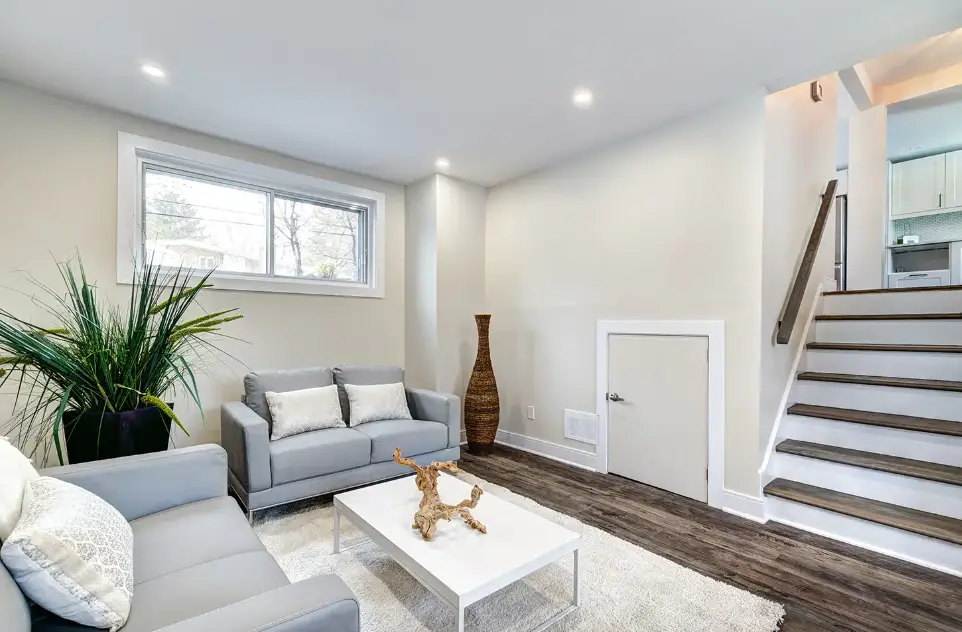
Additionally, high land values in California mean that it is more cost effective for builders to use the land space for actual living space instead of using it for a basement.
Are basements unhealthy to live in?
Basements are not necessarily unhealthy to live in; however, there can be health risks associated with them. The presence of moisture and the potential for mold and mildew growth can create uncomfortable living conditions, while poor ventilation may also cause a stuffy atmosphere.
Additionally, some basements are prone to flooding, which can lead to water damage as well as the growth of hazardous mold or bacteria. To ensure a healthy basement living space, proper maintenance is required to ensure the area remains dry and well-ventilated. Additionally, installing a dehumidifier can help reduce moisture levels and keep the air fresh.
Is it healthy to live in a basement?
When it comes to living in a basement, there are many factors that need to be considered. While having extra square footage can come with certain benefits, there are also potential health risks associated with living in this type of environment. The most common issue when it comes to basements and health is moisture. Basement spaces tend to be more prone to dampness and mildew, leading to the growth of mold. Mold has been linked to respiratory issues, allergies and can even increase your risk for certain illnesses like asthma. It is important to take measures to reduce moisture in the space by investing in a dehumidifier or other ventilation systems.
Why are there no basements in England?
Basements, a common feature of many houses in the United States and other countries, are relatively rare in England. The chief reason for this is that the soil in much of England is simply not suitable for basements. The geology of England includes large areas of clay-based soil, which does not provide an ideal basis for the construction of a basement. In addition, England’s water table is often higher than in other countries, so that basements can be prone to flooding.
Finally, the cost of digging and waterproofing a basement in England may be prohibitively expensive for many homeowners. There are some homes in England which have basements, but these are generally found in areas where the soil is more suitable for construction.
Which states have no basements?
Since basements are not necessary in all climates, some states do not have them. These include Florida, Arizona, and Hawaii. In these areas, homes often utilize crawl spaces to house plumbing and electrical systems or raised foundations with slabs for the building’s flooring. In drier climates where water is less of a concern, there is usually no need to invest in the cost and labor required to build a basement.
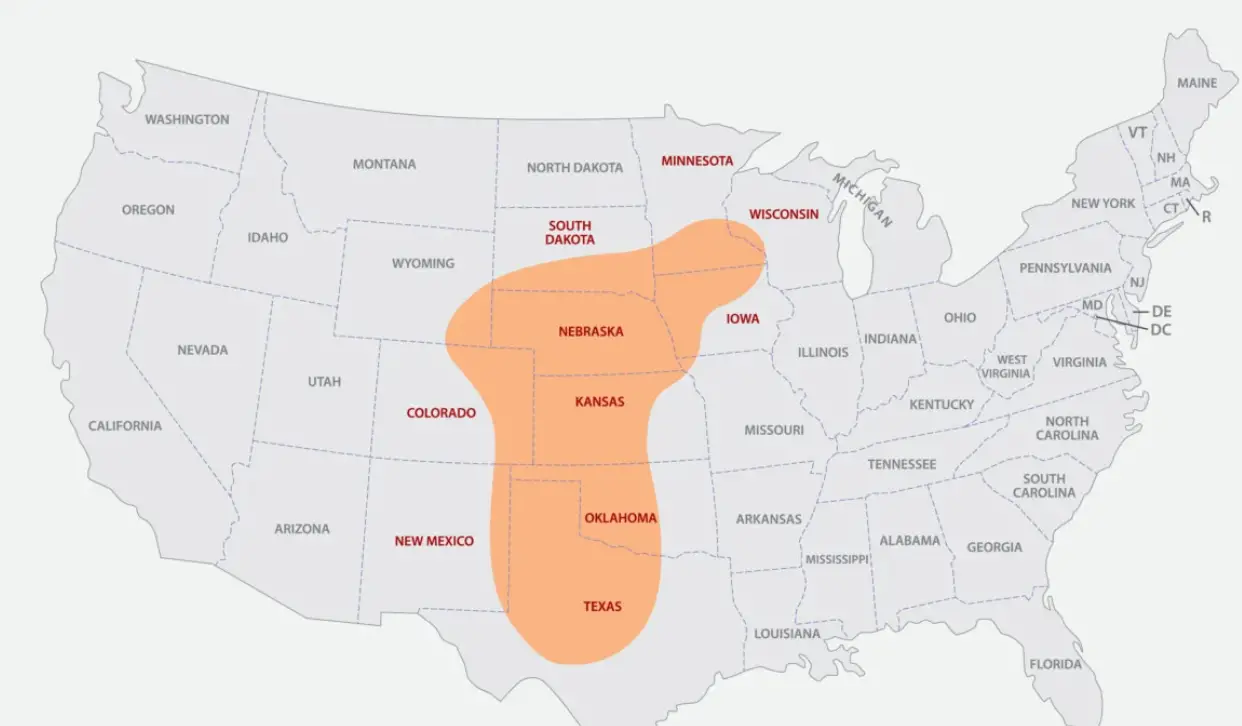
Why are basements popular in the North?
Basements are popular in the North due to their ability to provide insulation and protection from extreme weather. The underground location of a basement helps to keep temperatures more consistent year-round, even in regions where snowy winter weather is common. By having a basement, homeowners can protect themselves from the elements while still enjoying some of the comforts of home.
Additionally, a basement can provide additional storage space, furnishings, and utilities such as a laundry area. Basements are also often used to house expensive items such as boilers or furnaces, which would be more expensive to repair if kept at ground level. Other advantages of basements in the North include added privacy from neighbors and increased security for the home.
Why do humans fear basements?
Basements can be a source of dread and fear for some people due to their association with horror movies and stories. Basements have been the setting for many terrifying tales, as they often evoke feelings of claustrophobia, darkness, isolation, and terror. Many people associate basements with death or violence because they are usually set apart from the rest of the home and are often used as places to hide or dispose of bodies. They can also be a source of fear due to their unknown contents, such as spiders, rodents or mold that could cause harm if disturbed. Basements may evoke feelings of trepidation due to their association with darkness, dampness, and lack of natural light, which can make them appear creepy and intimidating.
Useful Video: Why are There No Basements in the Southern US?
Conclusion
The answer to why many houses have basements is both practical and historical. Practically, a basement gives a homeowner additional space for storage, as well as a place to keep mechanical systems out of sight and out of the way. Historically, basements have been used for sheltering from attacks or providing people with a safe haven in times of crisis. Whether to increase living space, store items, or for protection, the basement has been a staple of the American home for centuries. With its many practical and historical benefits, it’s easy to see why basements remain popular in homes today.
References
- https://www.hunker.com/13770927/why-do-houses-have-basements
- https://www.dribot.com/blog/our-blog-1/post/why-do-some-areas-in-the-usa-not-have-basements-10
- https://www.basementscanada.com/2019/10/23/why-do-homes-have-basements/
- https://ottawacitizen.com/life/homes/house-works-in-defence-of-the-basement-habit




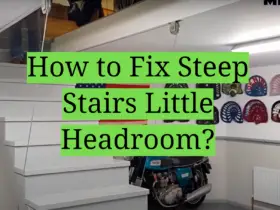
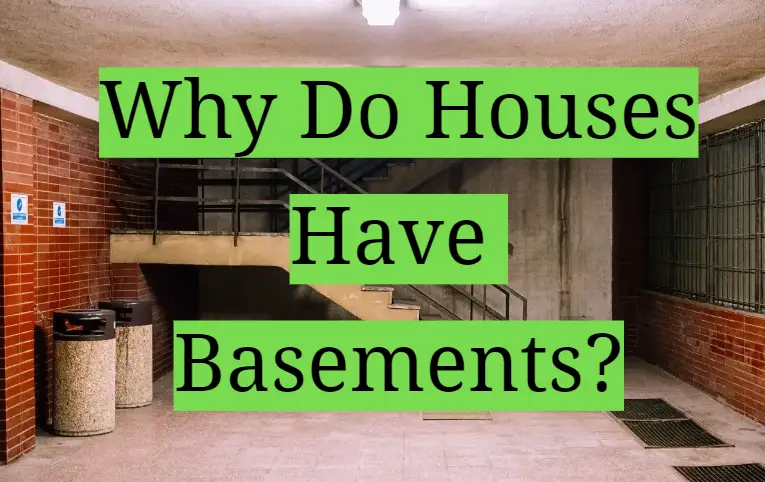

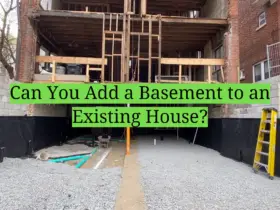
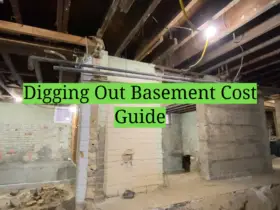
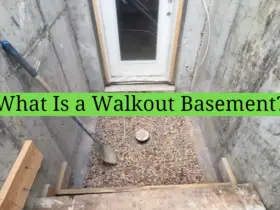
Leave a Reply